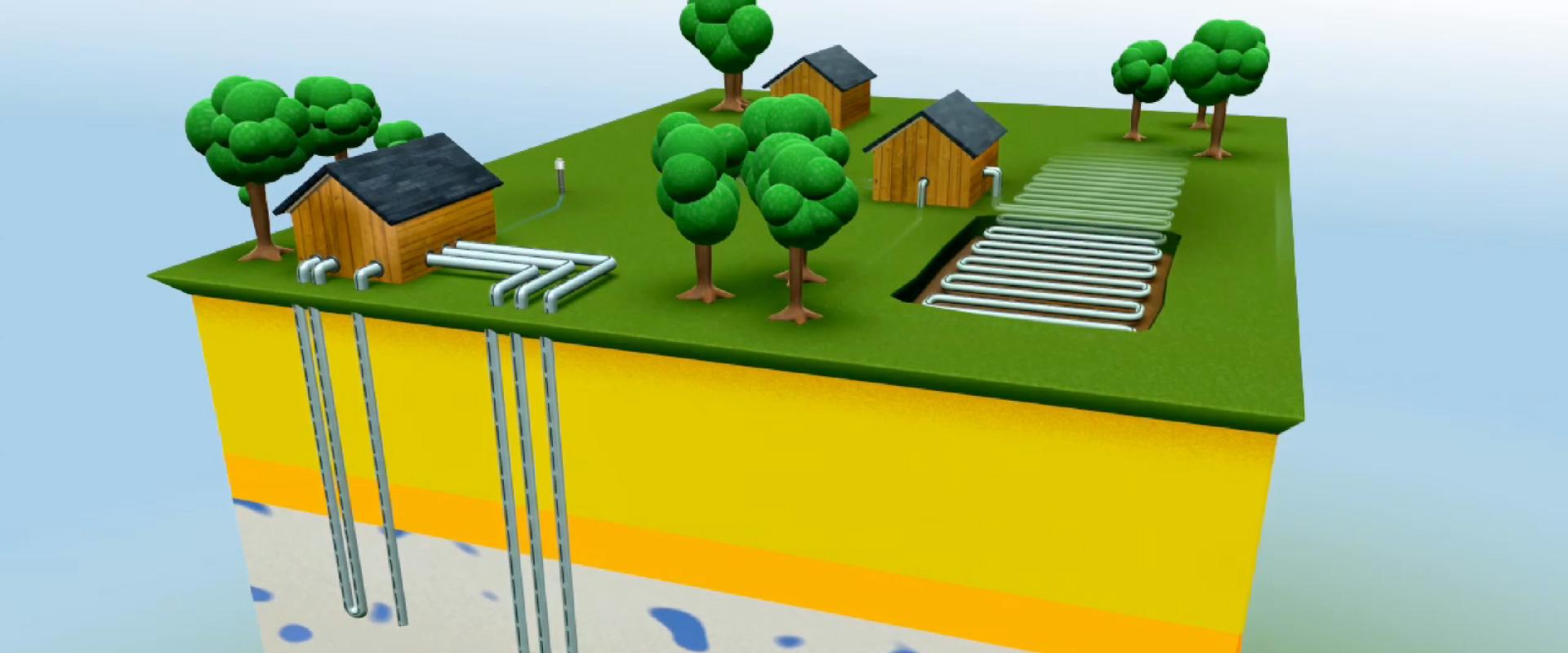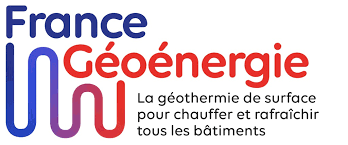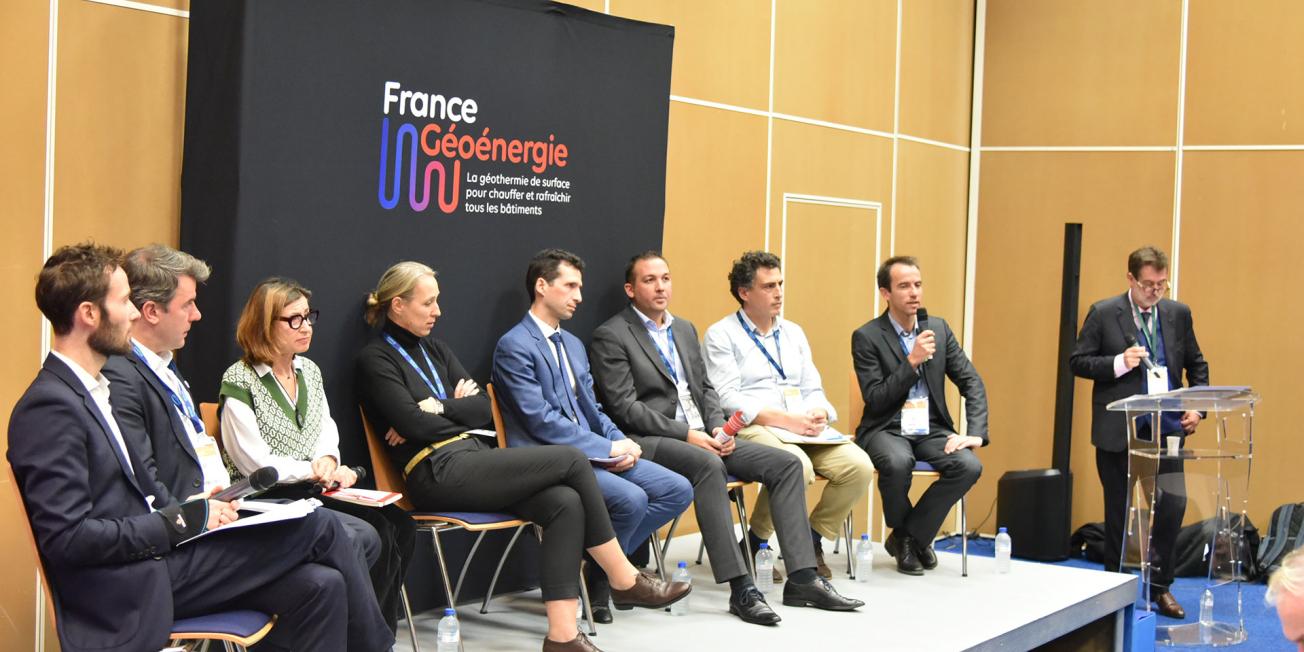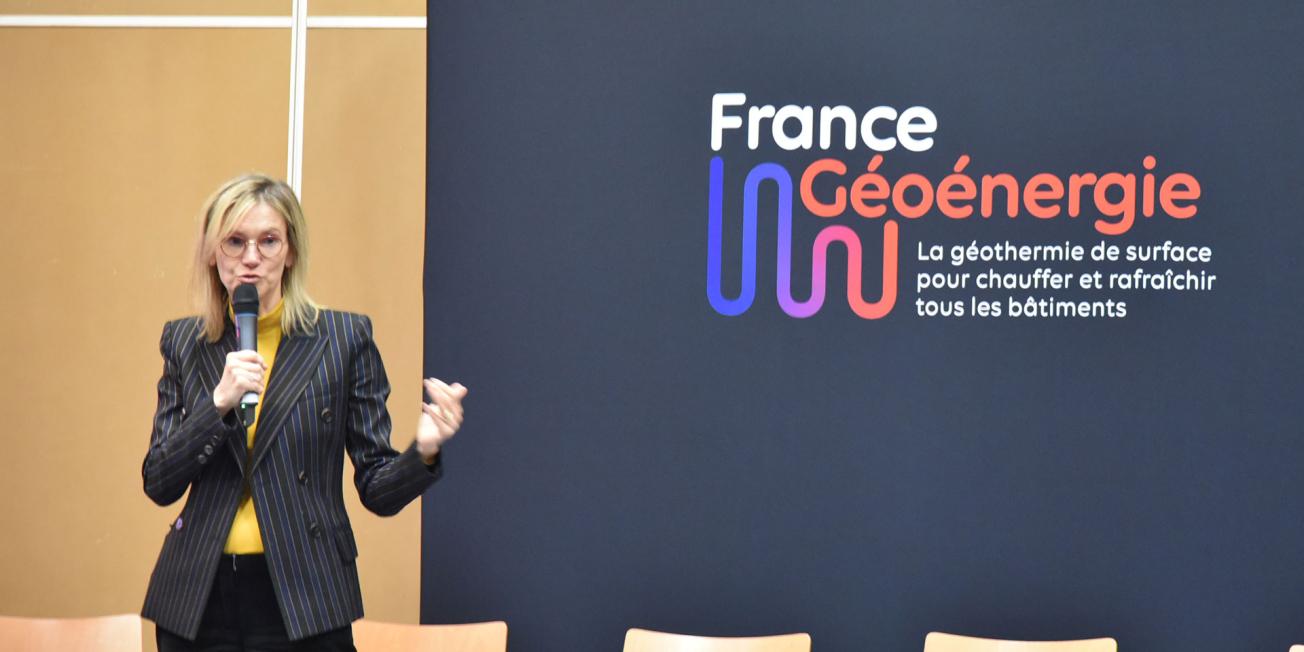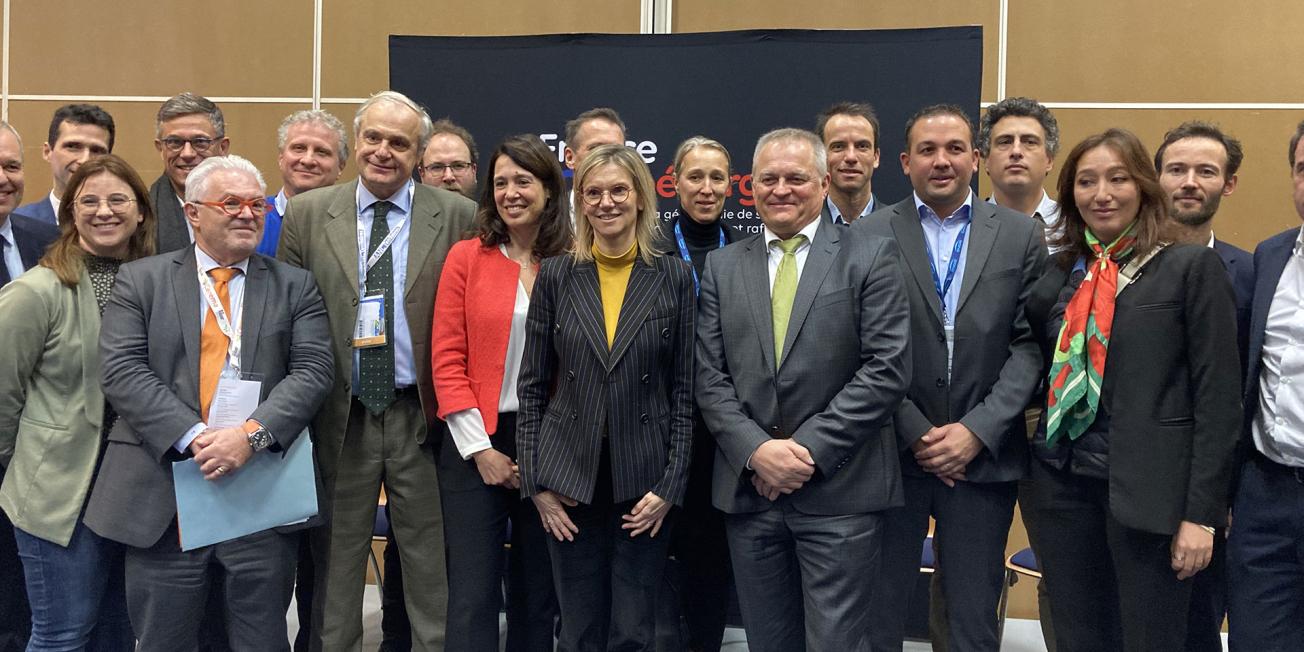The Association française des professionnels de la géothermie (AFPG) and the Université de la Ville de Demain announce the creation of France Géoénergie. Initiated by Celsius Energy, BRGM, Equans and Engie Solutions, the group's mission is to promote geo-energy, i.e., near-surface geothermal energy, and to support regional public and private users in deploying it to heat and cool all types of buildings.
The collective has two strategic goals:
- to make public and private project owners, as well as the general public, the media and institutions, more aware of the work being done on the potential of near-surface geothermal energy and its ecological and financial relevance,
- To support these project owners in the systematic use of geothermal energy so as to demonstrate the effective impact of this solution on pilot regions, and to provide training modules.
Near-surface geothermal energy: a promising challenge for regions
In an energy context that is as unprecedented as it is unstable, and given that heating, domestic hot water and air conditioning account for 30% of final energy consumption and 20% of our CO2 emissions, the building sector must make considerable efforts to limit its impact on the environment and public health.
In this context, geo-energy, or near-surface geothermal energy, which harnesses energy located in the first 200 metres of the subsurface, has great potential. The technology makes it possible to heat and cool buildings while reducing their CO2 emissions by up to 90% and their energy consumption by up to 75% compared to gas.
Although it is available in 90% of the country and could cover 70% of the country’s thermal needs, geo-energy currently accounts for only 1% of the heat produced in France. Deploying geo-energy on a large scale, in all regions, would accelerate decarbonisation and the energy autonomy of buildings. Within 15 to 20 years, it could provide 100 TWh of sovereign energy that is independent of fluctuations in fossil fuel prices, non-polluting and does not emit greenhouse gases, which is the equivalent, in terms of electricity production, of about 5 nuclear reactors.
A collective launched during the Salon des Maires et des Collectivités Locales 2022
Initiated during the Université de la Ville de Demain (Palladio Foundation) in July 2022, the collective was officially launched on 22 November 2022, during the Salon des Maires et des Collectivités Locales (SMCL), witnessed by the Minister of Energy Transition, Agnès Pannier-Runacher.
For the occasion, two round table sessions brought together leading institutions (Actions Cœur de Ville Ademe, Cerema, DGEC, BRGM), decision-makers from the real estate world (Vinci Construction, Nexity, Altaréa, Bouygues Immobilier, Equans, Icade), industrialists from the sector (Accenta, Geosophy, Celsius Energy, Engie Solutions, Drill'Heat) and regional representatives (the Member of Parliament for the Isère region, the Mayor of Versailles and the President of Versailles Grand Parc) Other stakeholders have also joined the movement, such as: BNP Paris Bas Real Estate, Construction 21, Solar Impulse, the Observatoire de l'Immobilier Durable (OID), and the architectural movement Unisson(s), and these will soon be joined by many others.
François Bayrou, High Commissioner for Planning, came to support the initiative, which foreshadows the recommendations of his report Climate responsibility: near-surface geothermal energy, a powerful lever, calling for a major national plan to deploy this clean and promising energy source.

